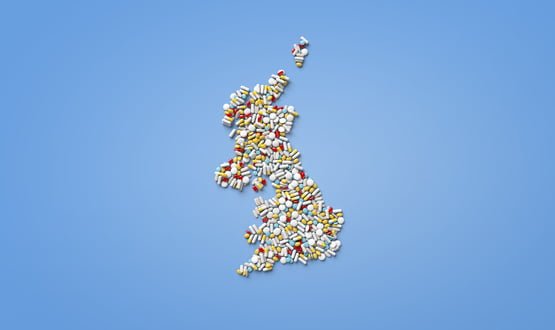Connected Health Cities creates blockchain patient consent model
- 26 April 2017

The prestigious Connected Health Cities data sharing project has used blockchain technology to create a new prototype patient consent model.
Connected Health Cities (CHC), the £20 million government initiative to improve data flows across cities in the North of Englan, has developed the prototype using blockchain distributed ledger technology, to enable granular patient consent on data sharing.
Presented on Monday at the Health for Informatics conference in Manchester, the proof of concept allows for patients to set detailed preferences for how and with whom their data may be shared.
John Ainsworth, director of CHC, said that by using this prototype “we can remove the need for mediation from a trusted third party”.
He told the audience in Manchester that the method used distributed ledgers to develop a consent model and embed it inside smart contracts on blockchain.
“This would allow citizens and patients fine control over who can view their data and for what purpose.”
Using a private blockchain, built using the ethereum blockchain platform, individuals can specify who they want to use their data and for reason, such as the NHS, pharmaceutical companies or university researchers.
“It’s not just opt-in or opt-out because that’s too crude”, Ainsworth told Digital Health News, “it’s who’s using the data and for what purpose are they using it”.
Likening it to the Facebook permission settings, he hopes the blockchain shared records consent tool will start to be deployed towards the end of 2017, and could have a citizen portal as a front-end.
CHC, which is part of former chancellor George Osborne’s Northern Powerhouse, has been running since January 2016 but was formally launched in September last year.
The £20 million is split £4 million each between four geographical regions: Yorkshire and the Humber, Cumbria and the north east, Greater Manchester and the North West coast, plus a central hub.
This patient consent model is supported across all the CHC regions, Ainsworth said.
However, there remain practical challenges with the prototype, Ainsworth admitted, and “what’s the business model that would actually make it work”.
“We’ve only really investigated from a technical point of view, so technically it looks feasible. The question would be blockchain – distributed ledger technologies – requires a lot of infrastructure.”
Google’s artificial intelligence company, DeepMind Health, is also attempting to create a data audit infrastructure using similar technology to blockchain.
When asked on the comparison, Ainsworth said there was a similar approach, but stressed that CHC’s prototype is just looking at managing preferences and consent, rather than the data itself.
The four individual regions are focusing on different clinical pathways, and varying solutions to allow researchers to access health data.
In Bradford, city-wide data sharing agreements have been signed to share de-identified data on childhood obesity and frailty in the elderly.
In the North East, the Great North Care Record, has already signed up 96% of GP practices in the area to turn on information sharing.
CHC is a three-year project and was commissioned by the Northern Health Science Alliance (NHSA), a health partnership that links leading university medical schools, NHS teaching hospitals and Academic Health Science Networks, and is funded by the Department of Health.





4 Comments
Has this project taken on board the significant risks and issues of using a consent based model for processing health-care data under GDPR in 2018.
There are far more effective and efficient legitimising conditions for processing this data that should be exploited under Article 9.2 statute, public interest, healthcare and public health.
I believe anecdotal evidence shows that in the health-care environment some 97% of the population expect their information related to their care to be shared between health-care providers, they always thought it had been and they have no objections.
The NHS has always relied upon the very dubious “implicit consent” model to allow personal data to pass through the system to support the free flow of clinical decision making.
I await the recommendations of the Caldicott 3 report to see how it will square the GDPR “explicit consent” requirements with the need to make information flows as effective and efficient as possible
Unless a real attempt is made to develop an adequate consent model which will meet the requirements under GDPR. Then research really does stay in the dark ages. Patients are key and getting them involved and talking to them explaining why data really does save lives is key. Many large Patient support groups are already playing there part in being involved. I look forward to seeing whether this consent system actually happens. Fingers crossed.
This is an interesting idea but not a new one as there is already an EU project funded by Horizon 2020 commenced in 2016 to look at this very issue but also the mechanics of how you share the data. It is working with a number of EU partners including hospitals from England.
The article acknowledges that this is a small part of a much wider problem and so “This would allow citizens and patients fine control over who can view their data and for what purpose” isn’t really true. Blockchain is just a ledger and you still need a much great set of capabilities to enable the actual data to be shared and then control what data is shared with who and how.
Problems such as identity, establishing the correct processes/data flows, the supporting plumbing, standards and data normalisation remain significant problems if all we do layer on blockchain to our existing ways of working.
Even then blockchain isn’t without its own privacy issues. Over time it will paint a picture of an individual and this picture will be shared with various parties in a distribute manner.
Why is Blockchain necessary for this kind of functionality? It seems like, and the article largely admits, that this is a technical flight of fancy. The real challenge isn’t solved by Blockchain, the real challenges are:
1) Adoption of a “centralised” consent model, this includes patients.
2) Patients understanding the implications of their choices.
Comments are closed.